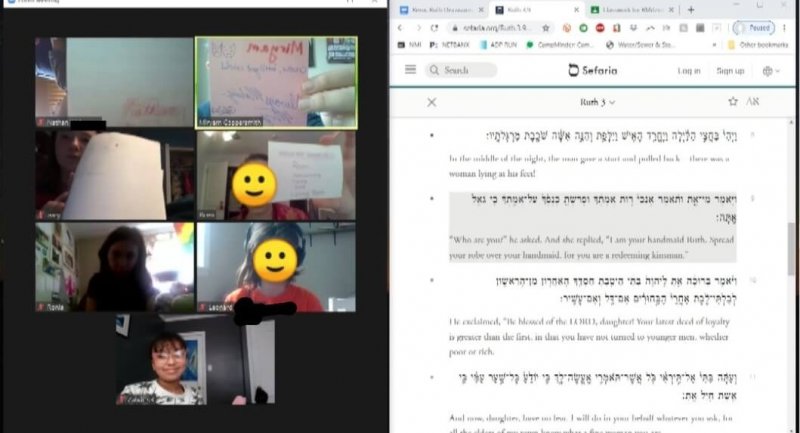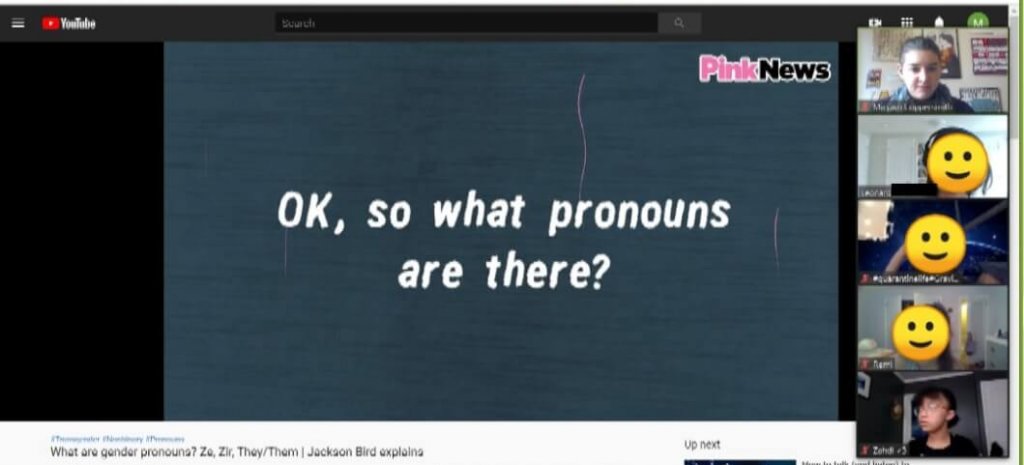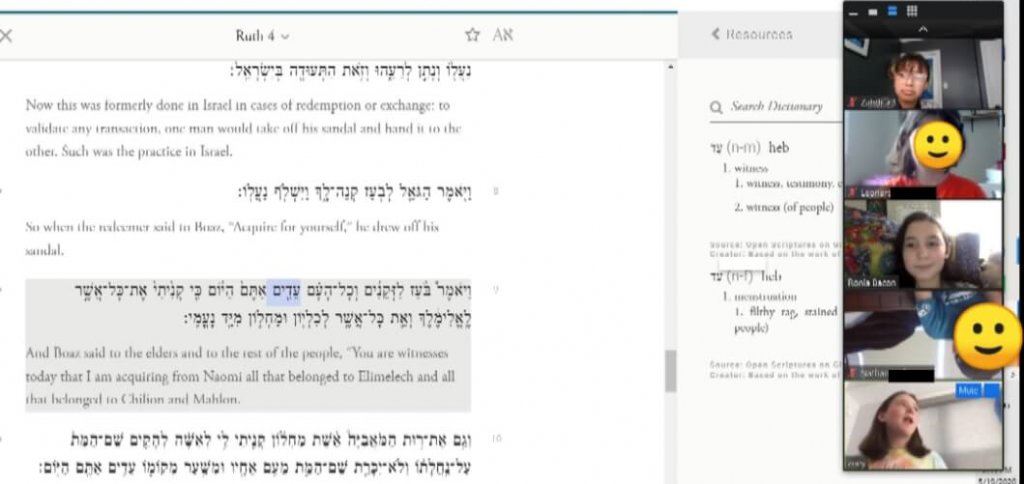
After seven weeks of studying the Book of Ruth, our BMitzvah cohort took the reigns on our discussions. Having the BMitzvah students lead text discussion is such a joy. These students deeply embody the middot (values) of “studying in order to teach” and “sharpening the wisdom of one’s teacher.” While working on these student-led discussions, we focused on using the tools of Sefaria, which allows you to view all of Tanakh (the Hebrew Bible) and have easy access to commentary and definitions of Hebrew words. I love seeing the BMitzvah students deepen their engagement with Tanakh through these tools.
Leo kicked off our conversations connecting the first few verses of the Book of Ruth, with Naomi’s decision to “reside and remain” in Moab, to our current experience of quarantine. He asked what changes we’d hope to see at the end of quarantine. Zoey said she wanted to see people be more sympathetic to each other. Remi wanted to see people outside more, safely. The text discussion that followed raised a lot of juicy questions about how we make big life decisions, especially in response to crises that are out of our control.
Zoey then led her discussion, asking why, after Naomi changes her name to Mara at the end of Chapter 1 of Ruth, does everyone still call her Naomi? How does it feel to not be called your chosen name? She connected this to the experiences of trans people being misgendered, a powerful association. Zoey brought our attention to the Aramaic Targum, which translates Mara as “bitter of the soul.” She thought this highlighted the differences between being “bitter of soul” and “bitter of life” as one can have bitter circumstances but still find happiness. Ronia added that souls are harder to change than life circumstances, perhaps indicating that Mara’s bitterness was more permanent than we thought.

Zahdi led us in a discussion on rumors, focusing on the information that Boaz gets about Ruth when he meets her. Zahdi’s video hook highlighted the fact that rumors are usually “dread rumors” and not “hopeful rumors.” In contrast, the information Boaz gets about Ruth is very positive, which may have meant that he was more likely to believe it. Nathan agreed, saying he didn’t think anyone would spread a rumor that wasn’t true.
Remi looked at one of the most perplexing scenes in the Book of Ruth, where Ruth lies down at Boaz’s feet, in hopes that he will marry her. Remi focused on how Ruth introduces herself to Boaz when he wakes up, as his handmaiden. We discussed how that introduction provokes a positive reaction in Boaz, partially because he values loyalty and humility so much. Remi connected this to the theme of reputation: why does reputation matter? Can your reputation change?

Ronia finished our discussions by focusing on the role of the witness, starting with an interactive game! We looked at the witnesses present when Boaz negotiates his marriage to Ruth. Why is it important for witnesses to be present at an event like this? Zoey answered so that you have proof that something really happened. Nathan agreed, saying it’s good to have someone to back you up that this important thing happened. Ronia asked whether we would want to have a witness with us all the time to back us up. “Definitely no. No no no, no thank you,” said Zoey. Most of us agreed that, while witnesses are important, privacy is also.
As a whole, the group connected a lot to the relationship between the community and the individual in the Book of Ruth. These themes are present in our lives always and especially at a time like this when we can feel quite distant from our communities. I’m grateful that we’re able to stay connected as a cohort through these deep discussions!
